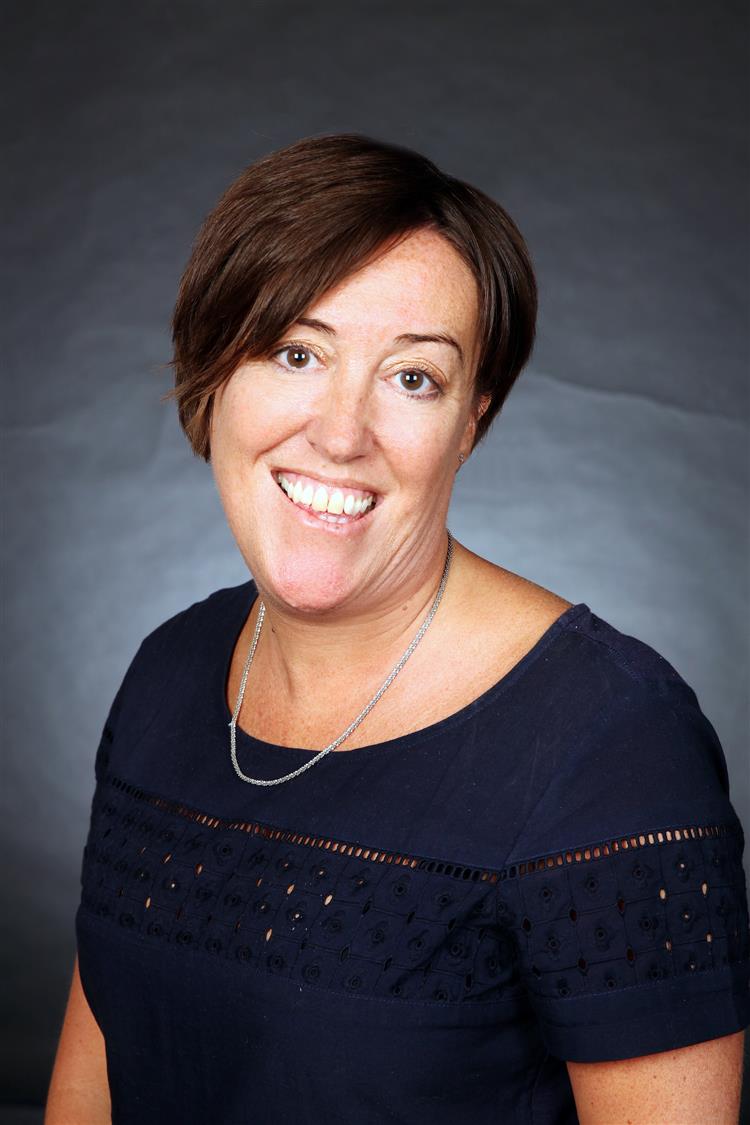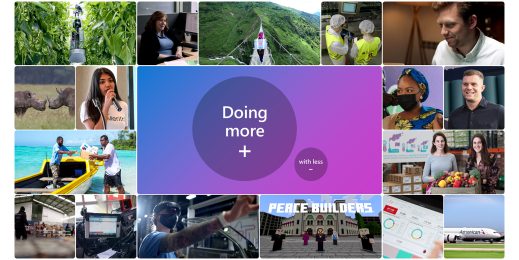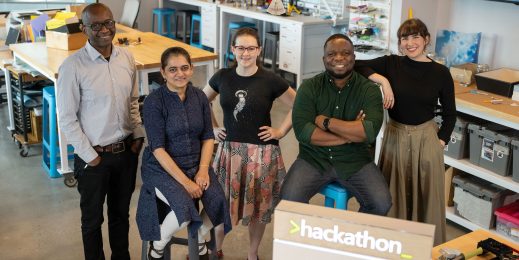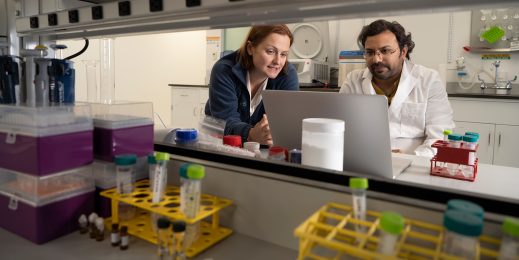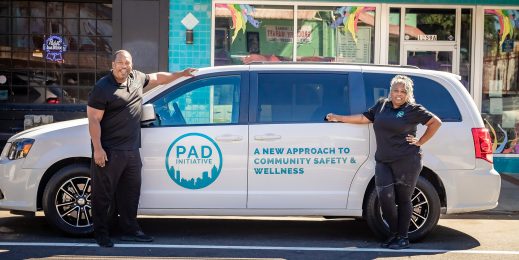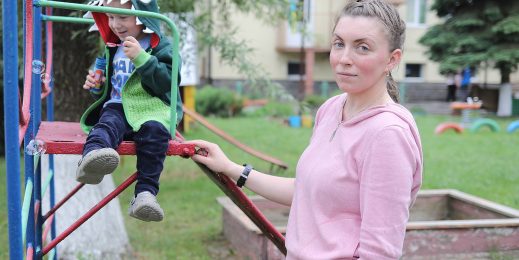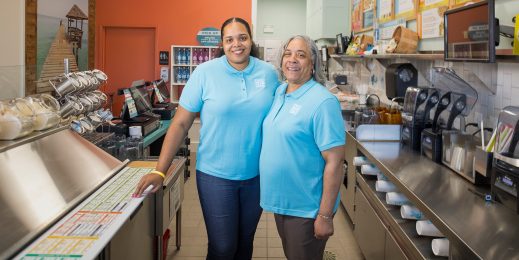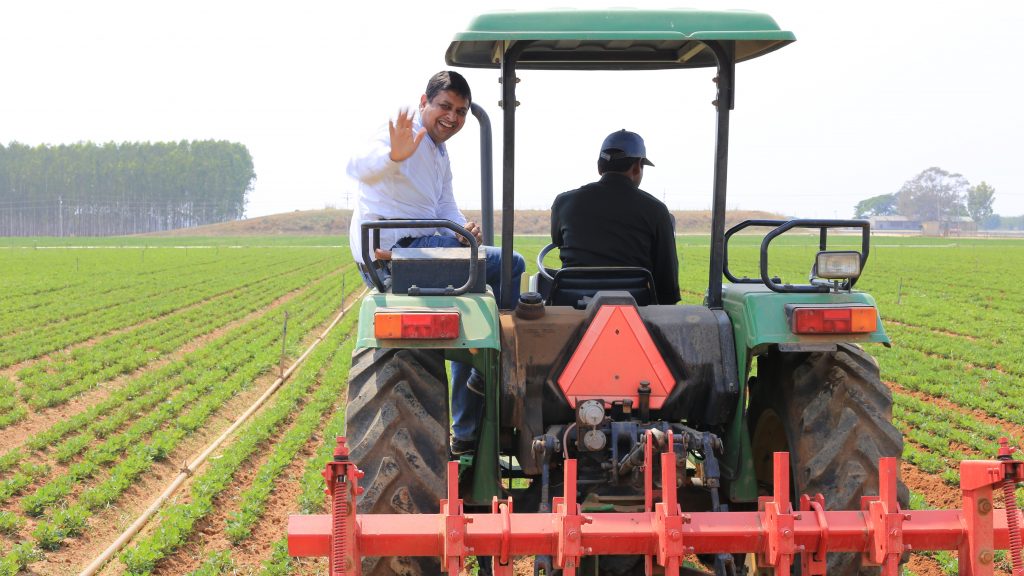
Stewards for the environment: A look at 4 Microsoft employees making a difference
In India, where a multi-year drought has affected more than 300 million people, Prashant Gupta is using technology to help farmers figure out the best times to sow crops. In Spain, Procurement Manager Karen Chalk, struck by the volume of discarded computers and tablets that can be re-used by those in need, has worked to create a successful global e-waste sustainability program. In rainy Ireland, where many think the sun is a stranger, Conor Kelly defies that notion by using solar photovoltaic panels on his own home, and works on smart energy proposals for datacenters. In Seattle, the humming of the hive is music to Krista Conner, whose passion is to improve the pollinators’ health and make it possible for beekeepers to maintain more hives.
All four are among the many Microsoft employees for whom every day is Earth Day. They embody Microsoft’s longstanding commitment to sustainability by leveraging technology and innovation in a variety of ways to tackle environmental challenges more effectively for the benefit of the company, their communities and the planet.
Prashant Gupta, India
In the southeastern coastal state of Andhra Pradesh in India, farmers have always planted their crops at exactly the same time each year. But Andhra Pradesh, with a population of 50 million, has been faced what is described as the worst drought situation in its history.
Prashant Gupta believed technology could offer a solution to tackle climate change.
Born in India, Gupta came to the U.S. for higher education, including getting a master of science degree from the University of Florida and master of business administration degree in marketing from Kellogg at Northwestern University. He worked for Motorola in the U.S. where he was a part of the team that created the RAZR Maxx V6, then the first cell phone to have broadband and touch controls.
At Microsoft, where he is a Cloud + Enterprise Principal Director, Gupta co-founded Microsoft Accelerator for startups in 2012, which later became Microsoft Ventures. He also played a significant role in the 2015 acquisition of Revolution Analytics, a provider of software and services for R, the programming language for statistical computer and predictive analytics and now integrated in SQL server 2016.
But India was never far from his mind, and he longed to go back and make a difference there.
“I said to myself that I think it’s time to go back and do some real social experiments in the country where I was born,” Gupta says. “That would give me a lot more satisfaction than, say, making millions.”
Last year, through Gupta’s initiative, Microsoft partnered with a United Nations agency, the International Crops Research Institute for the Semi-Arid Tropics (ICRISAT), and the Andhra Pradesh government to help ground nut farmers cope with the drought. Doing things the same way year after year was not working.
The solution, developed by Gupta and his team was to use advanced analytics and machine learning to launch a pilot program with a Personalized Village Advisory Dashboard for 4,000 farmers in 106 villages in Andhra Pradesh and a Sowing App with 175 farmers in one district. Both the app and the dashboard take advantage of advances in Microsoft’s computing technologies.
The Sowing App advises farmers on the best time to sow, based on weather conditions, soil and other indicators. The Personalized Village Advisory Dashboard provides insights about soil health, fertilizer recommendations and seven-day weather forecasts, all configured for every village.
ICRISAT officials, from their previous work in Andhra Pradesh, had earned the trust of many of the farmers, but Microsoft was new to them. Gupta spoke to many farmers across villages to understand core pain points in crop life cycle. Those include how variable rainfall directly impacts crop yields, and in some cases, when an entire crop cycle fails because of that, it can lead to debt and stress.
Last June, data from the Sowing App suggested that farmers should delay planting by three weeks, the farmers who followed that advice saw a 30 percent higher average in yield per hectare than the farmers who decided to stick with their traditional planting schedule.
To keep the costs of deployment low, the solution enables farmers to get information and updates about sowing through text messages sent to cellphones given to them. Regular cellphones, not smartphones.
“We did not take a smartphone approach here, that was a very important thing,” Gupta says. “The whole world is racing toward smartphones, but we actually took an SMS [text messaging] route on a very, very simple, basic phone and that worked for the farmers.”
Gupta says he is enormously gratified by the results, with the program expected to expand to other areas in India and other emerging economies such as in Africa.
“One of my passions outside technology and mobile cloud and industry innovating has been around inclusive development constructs, especially in India,” Gupta says. “This project gives me a chance to bring all my understanding and knowledge to see how we could really help farmers – farmers who are impacted by climate change – and give them some assistance.”
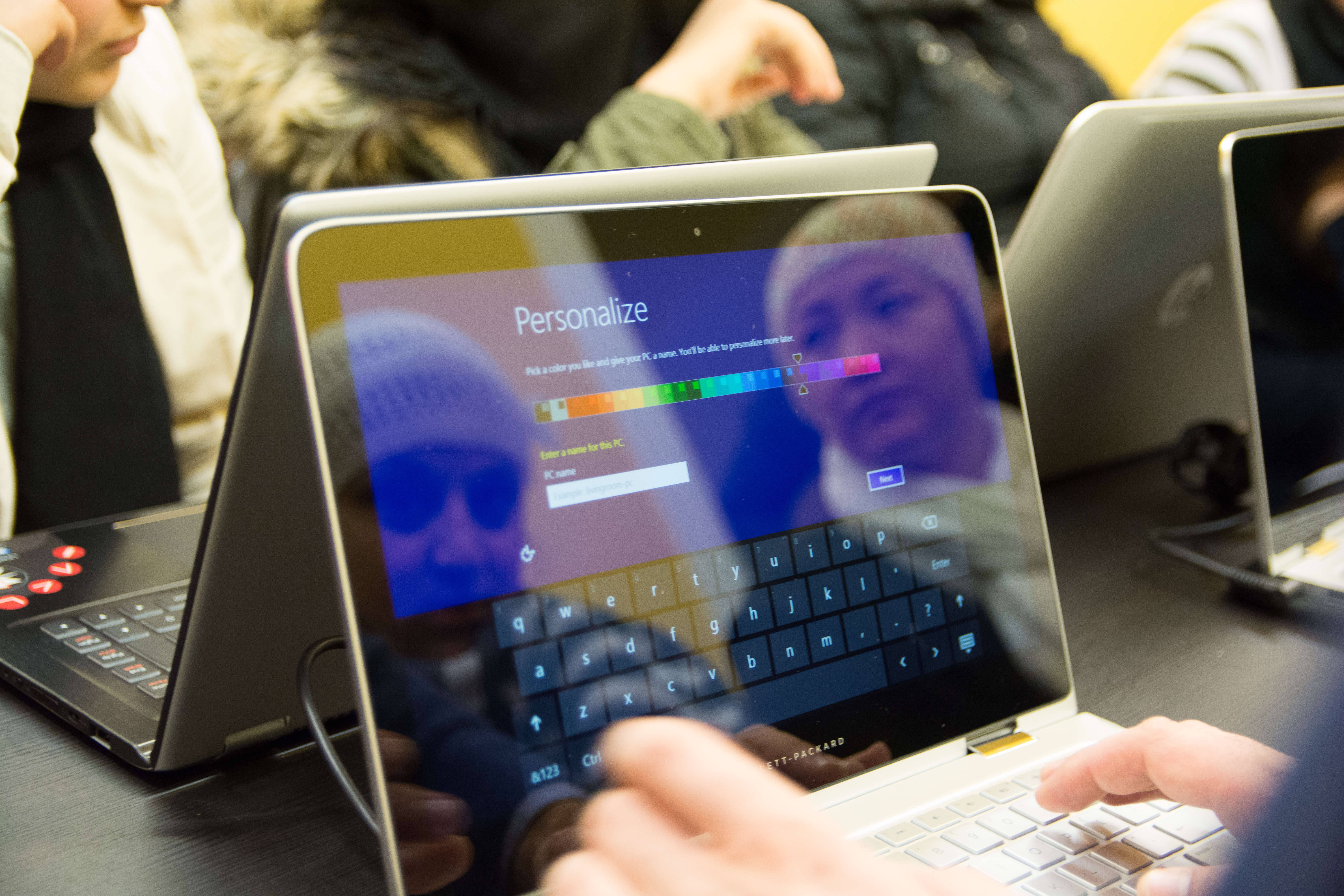
Karen Chalk, Spain
Numbers matter to Karen Chalk. As a longtime procurement manager, including more than 12 years at Microsoft, Chalk sees big numbers in her job overseeing the e-waste asset disposition of Microsoft devices. Her role entails making sure that Microsoft end-of-life computers and electronic equipment are recycled safely, both from an environmental and data security perspective.
It is a huge responsibility. But people matter to Chalk, too. A great deal.
Chalk was based in the U.K., but now does her job from Spain. The reason for the move was not related to her work, although Microsoft supported it. Chalk is an only child, and moved to Spain to be closer to her parents, who live in the Murcia region. There, Chalk and her husband are in the process of refurbishing an old property, putting it to good use, just as she is doing with electronic devices.
Five years ago, when more than 176,000 devices a year from Microsoft in the United States were making their way through Chalk’s spreadsheets, she wondered if there might be a way to expand geographical scope, both changing lives and reducing the amount of e-waste being recycled. What if end-of-life Microsoft devices were not only securely and safely decommissioned, but were also put to re-use by people and organizations that lacked access to technology?
Chalk has worked with team members from Microsoft Philanthropies, Environmental Sustainability, Finance, IT, Real Estate and Facilities and the Corporate External Legal Affairs Department to make the ITAD program a success.
“To see the results coming through the other teams that I’ve partnered with has been very rewarding,” Chalk says.
Meeting Microsoft’s strict re-use requirements, and abiding by the policies and recycling requirements of 70 nations, combined with a huge network of internal stakeholders, recyclers, suppliers and remarketers, makes for a complicated Venn diagram of logistics.
Some countries can take as little as three to four weeks to onboard onto the program; others can take more than a year.
Another success came last fall when Microsoft Philanthropies partnered with Procurement, Finance, and the Devices for Good Microsoft Hackathon team. The mission: to transform lives through technology by taking unused devices and putting them in the hands of underserved communities, and augmenting that with skill-building, mentorship and events.
The Melissa Center, a nonprofit organization in Athens, Greece, that helps women and children refugees from Syria, Iraq and Afghanistan, is among the beneficiaries.
At the center, some of the women using the laptops are highly educated and want to improve their skills and learn the local language; others have just as an important a need: to communicate via email with family members in other areas of the world.
“Procurement is often seen as cost savings and numbers,” Chalk says. “But in this role as a program manager, I’ve been able to stay within the procurement function, managing risk, brand reputation, sustainability and compliance with legislation – and most rewarding of all make a real impact on the lives of people less fortunate than ourselves.”
Conor Kelly, Ireland
Conor Kelly is a veteran marathoner and triathlete, and frequently bounds up the trails of his beloved Wicklow Mountains near Dublin, where he grew up.
These days, he still runs. But with a 2-year-old son at home and a baby on the way, he’s also thinking about the future, pushing to develop ways to ease the energy burden of datacenters – “incredibly power-hungry buildings,” he says – and to create a better world for his children.
A longtime environmentalist, Kelly believes that an individual can make a societal impact. Four years ago, Kelly bought some “derelict” farmland about 60 miles from Dublin, and with his brother and their friends, set about planting 5,500 oak, silver birch and other trees, mostly native to Ireland, to create a “small forest.”
“We want to teach our children about the outdoors, about sustainability, and about how they can achieve significant things if they set their mind to it,” Kelly says.
He and his wife share one car between them, an electric vehicle. And while Kelly bicycles many places, including to work, when he goes to his forest, it’s by that car. The electric vehicle draws curious looks from farmers in the nearby town, and he gladly stops and answers questions about its environmental and economic benefits.
“Seeing an electric car in person makes a difference for them in terms of demonstrating the technology,” Kelly says. “I also tell them about the cost savings, so they’re generally quite impressed with it when they learn more about it.”
Kelly knows that money matters. “The role of the modern environmentalist is to clearly articulate the financial merits of environmentally sustainable initiatives,” Kelly says.
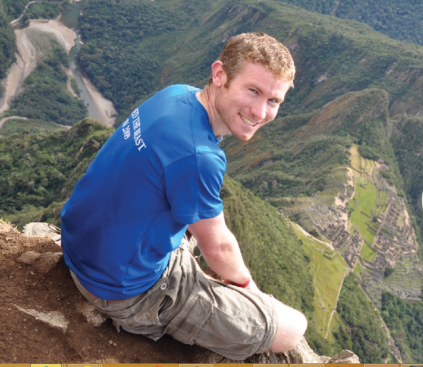
A longtime software engineer with Microsoft Office, Kelly was given not only wide berth, but also support, from his team to work on environmental initiatives. They include the 2016 Microsoft Hackathon, in which Kelly and his teammates developed the idea of a Microsoft Energy SmartGrid, to build a system which exposes real-time, global energy market data for consumption by energy intelligent applications, and a pilot project in Norway among Microsoft, Agder Energi and Powell AS to help create a more efficient flexible and intelligent grid of the future.
Kelly is also a big proponent of using solar photovoltaic (PV) panels for energy, even in his own country.
Wait a minute: solar power in Ireland? Doesn’t that seem counterintuitive? Not at all, he says.
“Solar PV works in almost every area around the world,” Kelly says. “It’s become quite efficient. It doesn’t need direct sunlight; it just needs light.”
Last fall, Kelly put solar panels on his own home, “and they’ve been incredibly effective,” he says. In addition, “The cost of solar panels has come down so sharply in the last four or five years that they’re extremely cheap now,” he says. “So it makes financial sense to use them almost anywhere in the world.”
Kelly says it’s difficult to describe what he does as “work.”
“Is it work if you really love what you’re doing?” he asks. “It’s a real privilege to work on something that you really love.”
Krista Conner, U.S.
“It’s kind of like I’ve become ‘the crazy bee lady’ to a certain extent,” Krista Conner says, laughing, and not minding the title at all.
A decade ago, Conner was diagnosed with breast cancer. She was in her 30s, a self-described “overachiever” who also loved rock climbing and kayaking.
Undergoing chemotherapy, those activities became less practical. Conner was looking for something she could do, she says, that would offer “mental relief, a topic that I could dive into and explore, and just provide a sense of normalcy.”
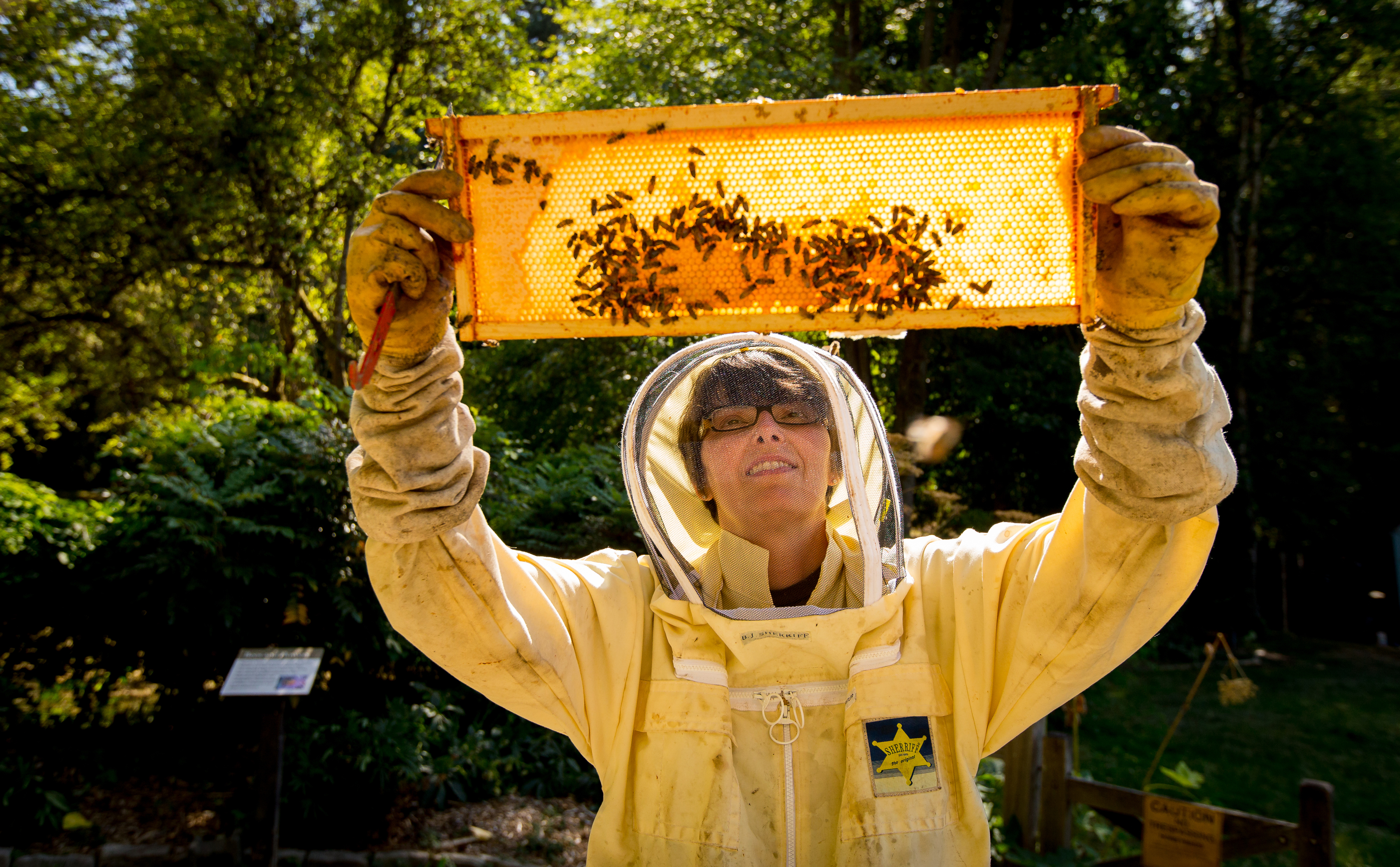
Bee Colony Collapse Disorder was much in the news then. Conner, who works at Microsoft for the Planning & Launch Services group, now as an operations program manager, ran into a coworker who was a beekeeper.
“Everything was falling into place at the same time to spark the exploration of the topic,” she says, adding with her sly sense of humor: “And I thought, you always hear about the birds and the bees, but I didn’t really know about how the bees worked.”
She started with two hives, which have since grown to 20. She also became so expert in the topic of beekeeping, she got involved with “the policies and politics of bees.” Conner served on the state of Washington’s Honey Bee Work group, advising state legislators on ways to improve the health of honey bees and the industry of beekeeping in the state.
“How we manage our land and crops impacts the health of bees,” she says. While Colony Collapse Disorder itself hasn’t been documented for many years now, there are other problems, including lack of diverse forage for bees and dwindling numbers of beekeepers.
“Bees are not going extinct, but they’re definitely harder to keep and more expensive,” Conner says. “In the past, it used to be that commercial beekeepers would make their money through honey production on small, intact farms where the bees weren’t being moved around.”
Now, she says, the way a commercial beekeeper makes money is very different, through pollination contracts that mean beekeepers and their hives are often on the move to various locations around the country to pollinate crops, making bees more vulnerable to disease, and the hives themselves subject to theft.
Conner, who is a past president of Puget Sound Beekeepers Association, also was a member of Project Beekeeper, the Microsoft Hackathon team in 2015 and 2016. The team continues its work today to use Microsoft mapping, cloud and development strategies to build bee population resiliency.
After five years of living cancer-free, Conner’s cancer has returned. She is once again coping with its challenges while maintaining her passion for the “hobby” that has become such an important part of her life, including mentoring new beekeepers.
“It’s hard to convey all the impact beekeeping has had on me,” she says. “I feel like I’m making a difference in many ways because of bees. It’s a layer of my life that has great meaning.”
Read more about these inspiring individuals, Microsoft’s full range of sustainability efforts, and find additional Earth Day-related content this week on the Microsoft Green Blog.
Lead photo: Prashant Gupta rides on a tractor with a farmer in the state of Andhra Pradesh in India.





